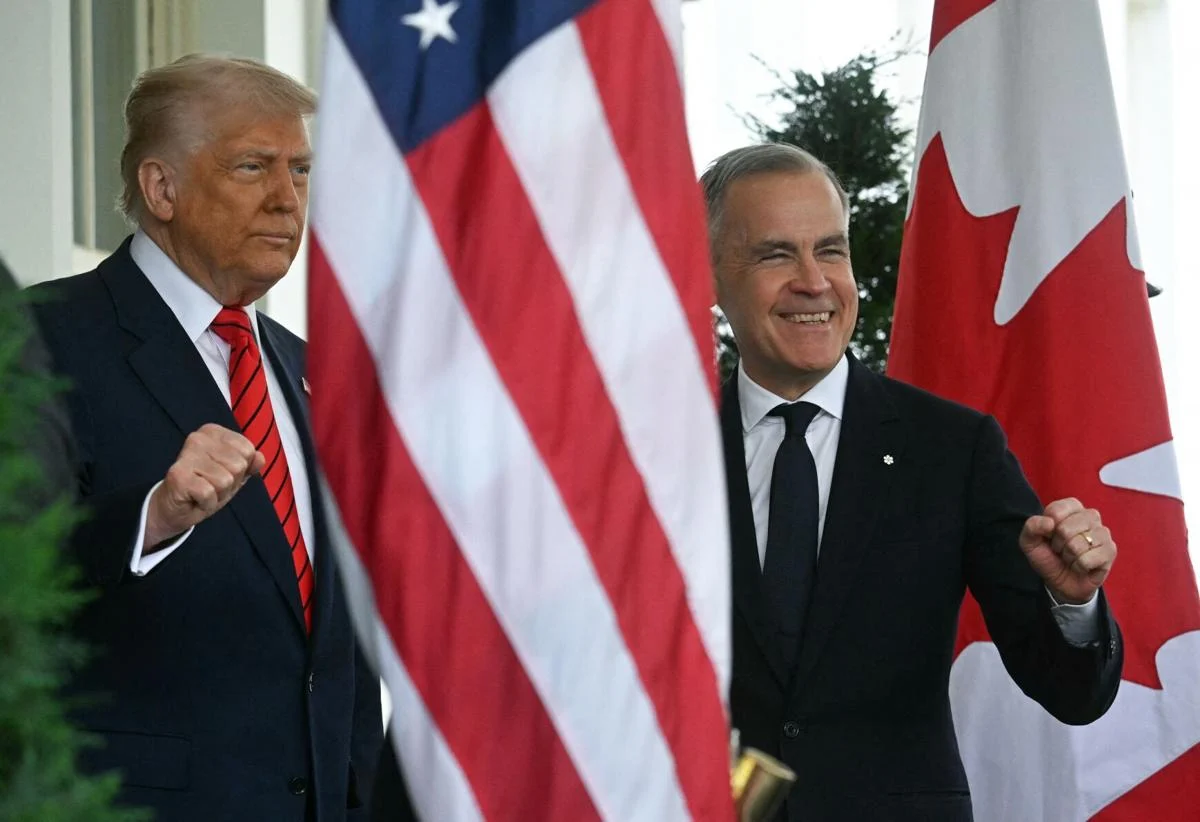
Carney emphasizes in their first meeting with Trump that Canada would never be for sale
Mark Carney, the prime minister of Canada, told Donald Trump directly during his first meeting with the U.S. president Tuesday that Canada will never be for sale.
In addition to vowing to oppose U.S. tariffs and annexation talk, Carney, who won the race on April 28, later claimed to have requested Trump to cease using Canada as the 51st state in public.
Overall, Carney described the discussion as positive and stated that the two parties would begin serious negotiations on a new partnership that he believes is necessary in the wake of the tariffs.
According to Trump, the meeting was “great” and he and Carney get along well.
“I think the relationship is going to be very strong.”
In an opening session at the Oval Office, both presidents lauded one other in front of reporters before meeting privately, despite Carney’s repeated calls for Trump’s actions to be betrayed.
The two sides will not be talking about Canada joining the US, according to Trump, but he claimed it would be “a wonderful marriage.”
Carney firmly established the annexation theory.
“It’s not for sale, it won’t be for sale – ever,” he declared.
“Never say never, never say never,” Trump said.
World markets have been rocked by Trump’s tariff strategy. He had stated that he and Carney will talk about “tough points,” a reference to the president’s long-standing opinion that the US can live without Canadian goods.
Unlike the tense exchanges that characterized Ukrainian President Volodymyr Zelenskiy’s February visit, the meeting never seemed in danger of turning into one. For other international leaders, that experience has served as a reminder about the delicate dance they must perform when engaging with Trump.
We’re going to be friends with Canada no matter what. The United States will always defend Canada, Trump declared prior to the private meeting with Carney. “Canada is a very special place to me,” he added.
Investors weighed Carney’s visit, and the Canadian dollar surged to an almost seven-month high versus its U.S. equivalent.
ACTIONS TAKEN: CARNEY
Voters were assured by Carney’s Liberal Party that the party would diversify an economy that was mostly reliant on exports to the United States and establish a new bilateral economic and security agreement with Washington.
“We accomplished something. “There will be meetings between ministers and officials, and we had very comprehensive tangible exchanges,” Carney later stated at a news conference, adding that he will meet Trump at a G7 summit in Canada in the middle of June.
Canadian officials were clearly relieved, given the possibility of Trump’s blunders and erratic responses. Reuters was informed by a senior delegation member that the meeting was “a 10 out of 10.”
Carney lowered hopes of a breakthrough in the negotiations before to the visit. Carney did, in fact, respond, “No,” when asked whether he could say anything to convince Trump to remove tariffs.
Over lunch, Carney informed Trump that the tariffs were illogical, according to a senior Canadian government official.
Carney informed reporters that he had requested that Trump remove the reference to Canada as the 51st state, seeing it as “not useful.”
“But the president will say what he wants,” he stated.
Donald Trump signed the U.S.-Mexico-Canada Agreement during his first term in office, but he has since distanced himself from it. Carney’s remarks of a new economic relationship had raised questions about its viability. In 2026, a review is scheduled.
Trump characterized the agreement as “fine” and “great for all countries,” while Carney refrained from proposing a significant overhaul, stating that just certain aspects of the treaty needed to be altered.
The presidents met shortly after Trump reaffirmed his grievances with the trading relationship in a Truth Social post.
“We don’t need their cars, we don’t need their energy, we don’t need their lumber, we don’t need anything they have, other than their friendship,” wrote Donald Trump.
Trump continued to express his worries about what he described as the massive U.S. deficit with Canada during the meeting. The majority of the C$102.3 billion ($74.25 billion) surplus in Canada’s merchandise trade in 2024 came from American imports of Canadian oil.
After Mexico, Canada is the United States’ second-largest individual trading partner and the country’s biggest export destination. Over $760 billion worth of commodities were exchanged between the two nations last year.
Canada’s goods trade surplus with the United States shrank to a five-month low in March, when Trump’s tariffs on imported steel and aluminum went into effect, according to the U.S. Commerce Department on Tuesday. This was the second-largest decline in Canadian exports to the United States, with a $3.7 billion decline.
After imposing a 25% tariff on all imports of steel and aluminum in March, Trump placed an additional 25% tax on automobiles and parts that did not adhere to the USMCA.
All Categories
Recent Posts
Tags
+13162306000
zoneyetu@yahoo.com



